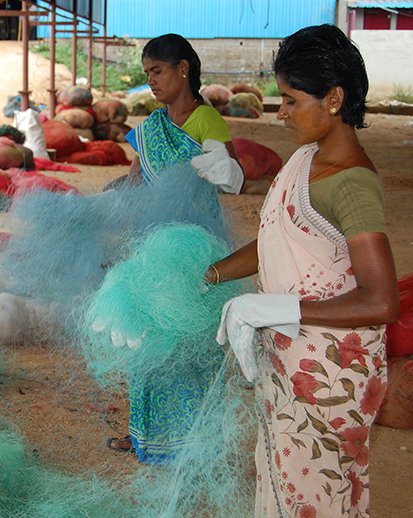DSM Engineering Materials
About Engineering Materials
DSM Engineering Materials provides high performance specialty materials that address key market needs in automotive, electronics and consumer goods. Besides serving these three main sectors, we offer sustainable engineering materials also to specialized industries including water management, health/medical, electrical power distribution, food utensils and multilayer flexible food packaging.
Engineering Materials performance
DSM Engineering delivered an excellent operational result in challenging conditions marked by global supply chain disruption and industry-wide raw material shortages.
Accelerating profitable topline growth
In 2021, we effectively applied our strategy focused on accelerating profitable topline growth while improving cost and margin management. This strategy also involves further expanding and diversifying into high-growth, high-value markets including medical and food & water.
A key highlight from 2021 exemplifying this diversification was the launch of a new family of medical-grade solutions addressing growing customer demand for advanced material solutions. These solutions are intended for use in a broad range of medical devices such as medical gowns, respiratory tubes and inhalers, and will help medical device manufacturers improve the quality of care for patients around the world.
In food & water, we supply advanced materials for components in faucets, kitchen appliances, food dispensers and food conveyor belts.
The quest for new and more sustainable forms of mobility, including electric vehicles, remained a key driver for our business in 2021. We continued to shift our portfolio toward higher-value, specialty materials with advanced grades and improved properties. For example, we increased our number of advanced grades offering high performance in areas as diverse as heat resistance, thermal conductivity, electromagnetic interference shielding, electrical insulation performance, halogen-free flame retardancy, and hydrolysis resistance.
Helping to shape the circular and bio-based economy
We accelerated our own carbon footprint and greenhouse gas (GHG) emission reduction plans and goals in 2021, committing to the following objectives:
- Reducing total GHG emissions — including scope 1, 2 and 3 upstream — and the carbon footprint of our products by 50% by 2030, from a 2016 baseline
- Using 100% renewable electricity in all our production sites by 2025
- Achieving net-zero scope 1 and 2 GHG emissions by 2040 on the way to net-zero across all value chains by 2050
By accelerating our sustainability ambitions, we will help customers future-proof their own portfolios and achieve their sustainability targets, while continuing to differentiate ourselves in the industry.
In June, we announced that we had successfully halved the carbon footprint of Akulon® PA6 in Europe and were also developing GHG reduction roadmaps for Stanyl® PA46 and Arnitel® TPC.
We made strong progress in helping our customers transition to a more circular and bio-based economy with our wide range of circular and bio-based solutions.
An example is Akulon® RePurposed, which addresses the problem of abandoned and derelict fishing nets. We pioneered an initiative whereby these nets are collected, sorted in South India, and recycled to create this polyamide. This solution is widely used by leading manufacturers of automotive parts, consumer goods, electrical devices, and industrial equipment to create world-class products. The creation of Akulon® RePurposed enables us to simultaneously reduce waste in the oceans, recycle plastic waste washed up on beaches, and drive jobs for local communities. An example of the use of this polyamide includes Schneider Electric’s Merten range of sockets and switches. More information on this collaboration can be found in the case study in this Report.
To address growing demand for lower carbon footprint and the use of more sustainable feedstocks in the sports and apparel value chain, we launched Arnitel® B-MB, a bio-based mass-balanced thermoplastic elastomer, in partnership with Sympatex Technologies. By using Arnitel® B-MB to manufacture its waterproof, windproof, and breathable membranes for sports applications, Sympatex can shift to a more sustainable, lower-carbon footprint solution without having to requalify materials.





